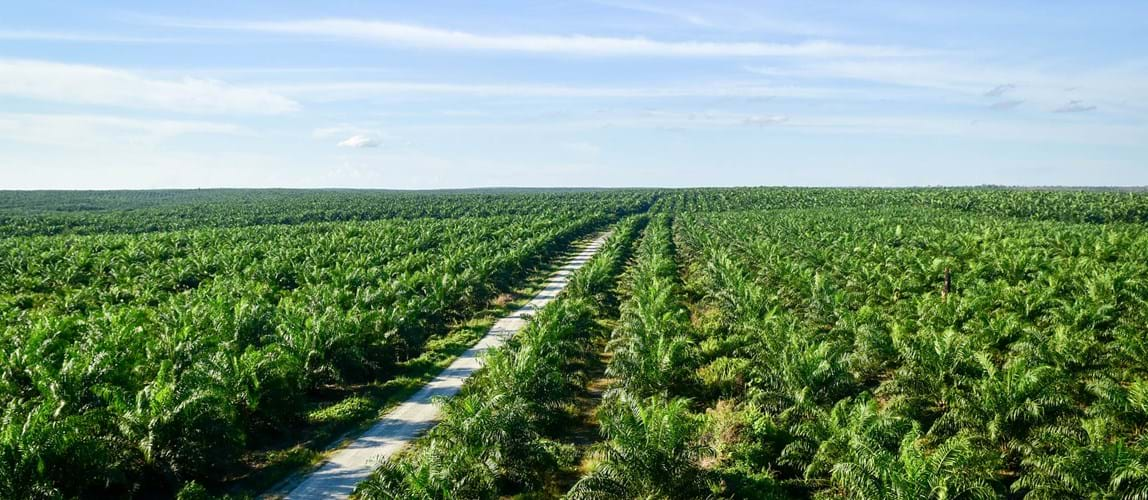Palm Oil Processing
The Truth about Oil Palm | Palm Oil Milling Initiatives

- Date From 17th June 2019
- Date To 17th June 2019
- Price FREE
- Location Monash University Malaysia, Seminar Room 6-2-14, Jalan Lagoon Selatan, Bandar Sunway 47500, Subang Jaya, Selangor, Malaysia
Overview
18:00: Registration and refreshment
18:25: Short briefing by Mr. Hong Wai Onn, Chair of POPSIG
18:30: Presentation
19:30: Question-and-answer session
20:00: Networking session
Registration
Click to register to attend physical event>>>
Click to register to online live Go-To-Webinar>>>
Speaker's Biodata
Ir. Chew Chien Lye @ Mervin
Ir Mervin is currently a Chief Engineer at Sime Darby Research. He holds double degree in Mechanical Engineering from Universitaet Duisburg-Essen and Universiti Kebangsaan Malaysia. He is current a Professional Engineer by Board of Engineering Malaysia. His work focuses on oil mill process improvement particularly on quality enhancement and efficiency optimisation. He is tasked to provide technical supports 4 mills on technology evaluation, assessment, advisory and troubleshooting works.
He has vast experience in conducting researches and transforming laboratory test into pilot and commercial scales. His interdisciplinary skills resulted in few successful commercialisations of in-house developed processes, where he involved in the plant process design as well as mechanical design. Mervin contributed 4 patents and 6 publications on palm oil mill process improvement. His outstanding and inventive research knowledge in engineering resulted in commercialization of three developed processes.
In 2016, he received the R&D Recognition Award for his “Premium Quality Enhancement Project” from Sime Darby Plantation. Subsequently, he won the Young Industrialist, IChemE Malaysia Award 2018 and highly commended for Palm Oil, IChemE Malaysia Award 2018 category. This year, he and his team received Best New Patent Filing for 2018 Award for Innovation Day 2019 by Sime Darby Plantation.
Overview
The Truth About Oil Palm
Today, palm oil accounts for 34% of the worlds’ vegetable oil production, with Malaysia contributing 39% of the world’s palm oil production. Being one of the major palm oil producers and exporters in the world, Malaysia plays an important role in fulfilling the needs of the growing global market as the world’s population is growing rapidly. The oil palm tree is the most efficient crop as it produces 3.8 tonnes of palm oil per hectare of land as compared to rapeseed, sunflower and soybean oil with efficiency of 0.8, 0.7 and 0.5 tonnes of oil per hectare of land respectively. The oil palm utilizes the lowest harvesting area of 7% (20 million hectares) as compared to the total oilseed land area in the world of 289 million hectares. In terms of total world agricultural land, oil palm utilises only a meagre 0.5% of the land area as compared to 4.2 billion hectares used for agriculture in total. In addition to this, palm oil contains almost 50% unsaturated fatty acids and the remaining is saturated fatty acids where it is used as an alternative to trans-fats. This non-genetic modified oil is also rich in antioxidants and used widely in various food and non-food products. Lately however, the oil palm industry has been accused to be unsustainable, causing major deforestation and killing of the Orang Utan and palm oil has also been linked to causing health related problems by certain quarters of the public, which led to banning of palm oil by the European Union. Hence, it is a crucial time now to spread the truth about palm oil by creating awareness to shift public’s perception based on actual facts of palm oil.
Palm Oil Milling Initiatives
The production of edible palm oil generally goes through 3 stages whereby the fresh fruit bunches are firstly harvested from the oil palm plantation and then delivered to the palm oil mill to extract the palm oil from the palm fruits, after which the crude palm oil is sent to the refineries to purified to edible palm oil. The palm oil milling process has faced various challenges over the years and has remained stagnant for the past 30 to 40 years. New quality requirement (of low 3-MCPD & GE), high carbon footprint, stringent environmental regulations, public perception and labour issues are the main challenges faced currently. Nevertheless, these challenges inspire research and development and implementation of technologies in the mills through innovation.
Member-exclusive content
Become an IChemE member to enjoy full access to this content and a range of other membership benefits. If you are already a member, please log in.
Back to events